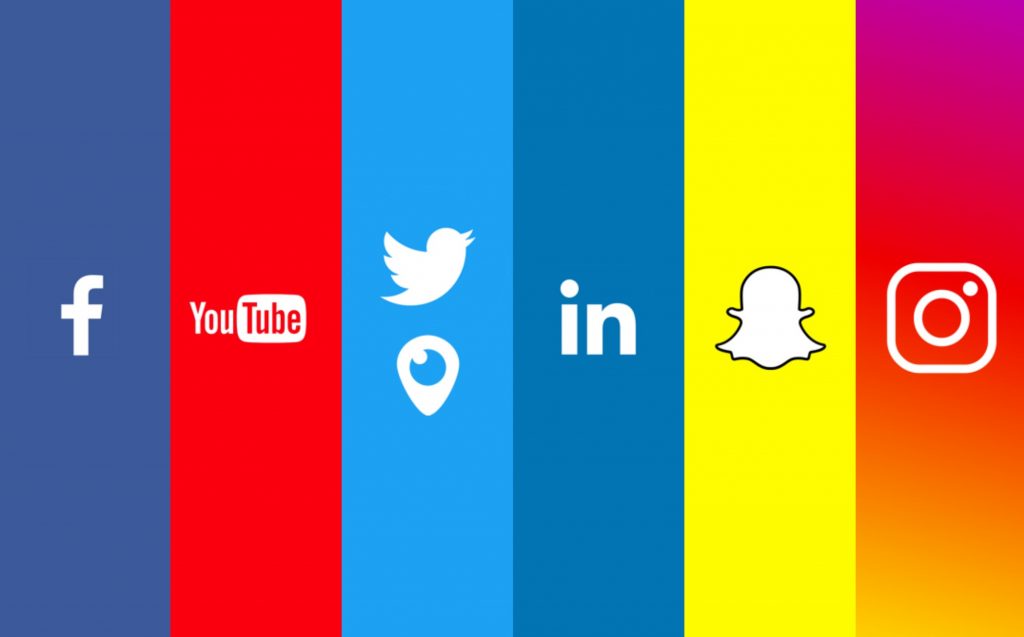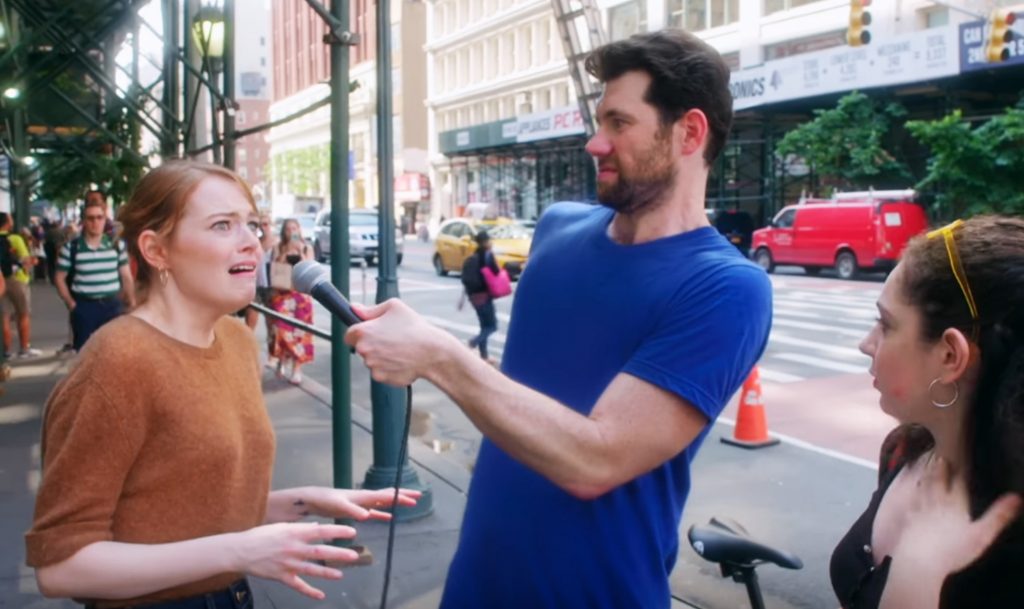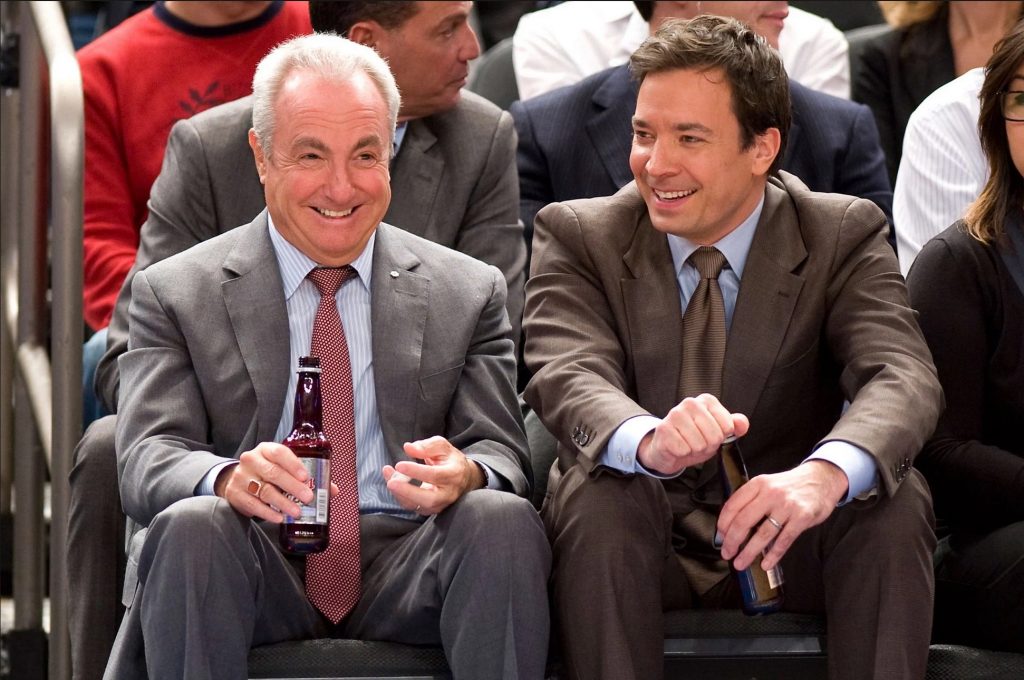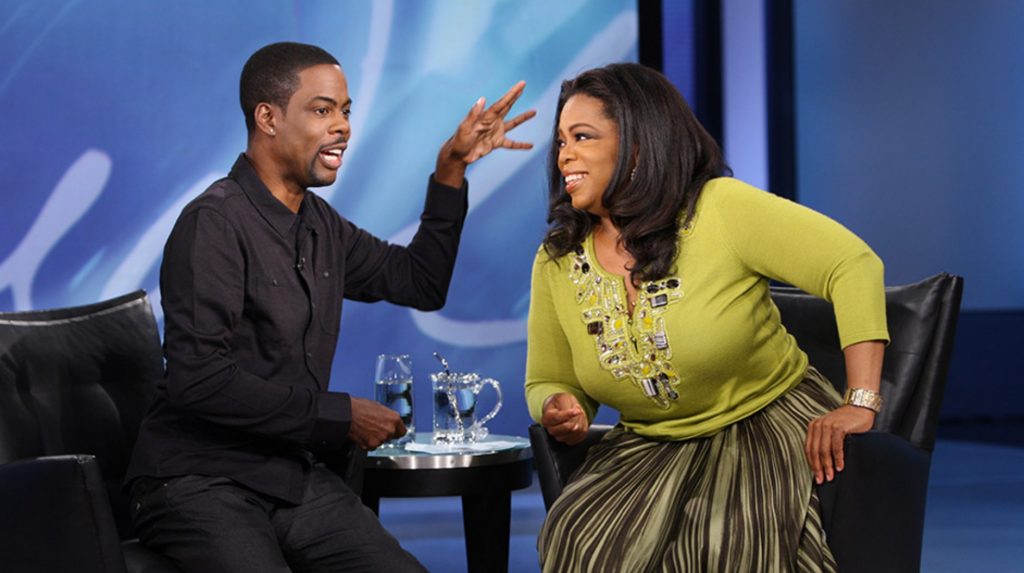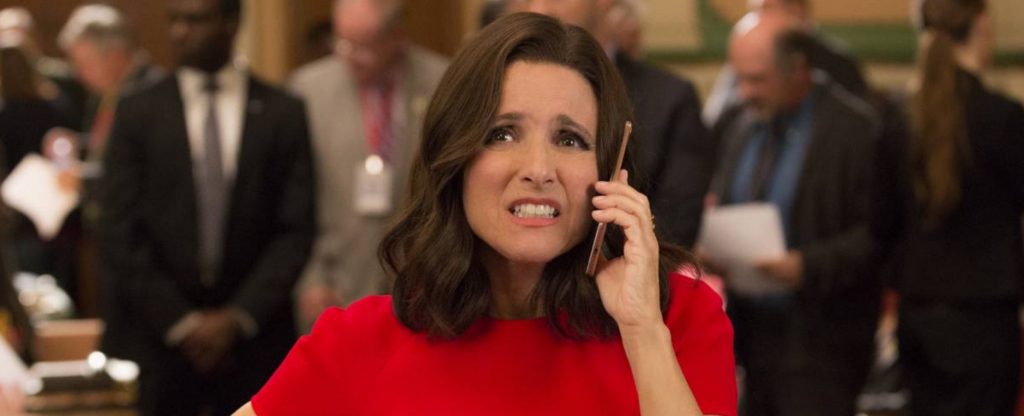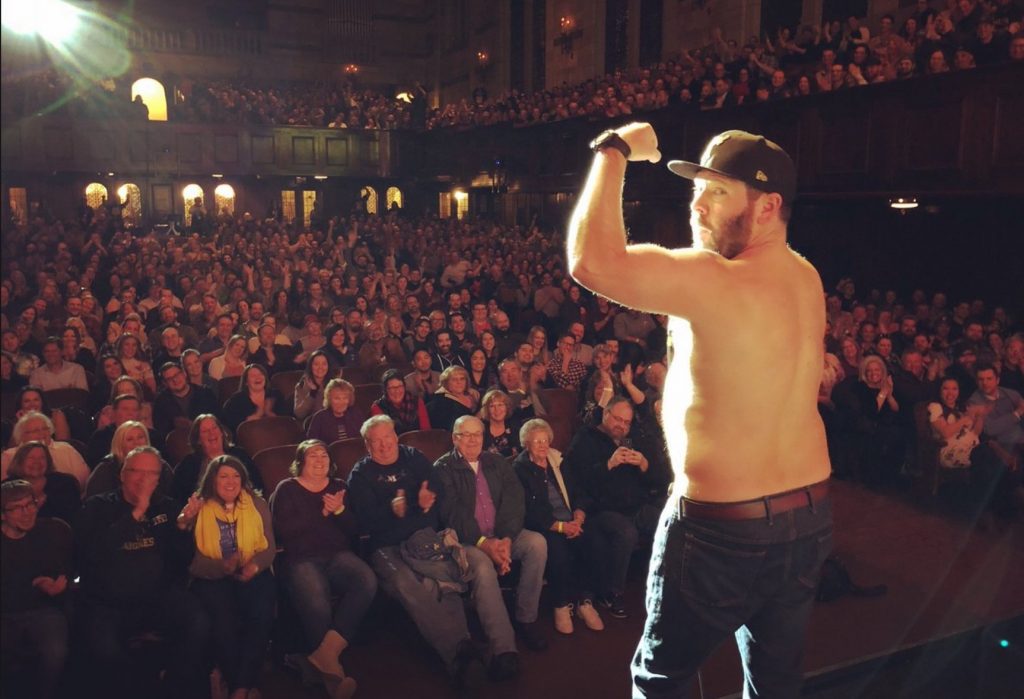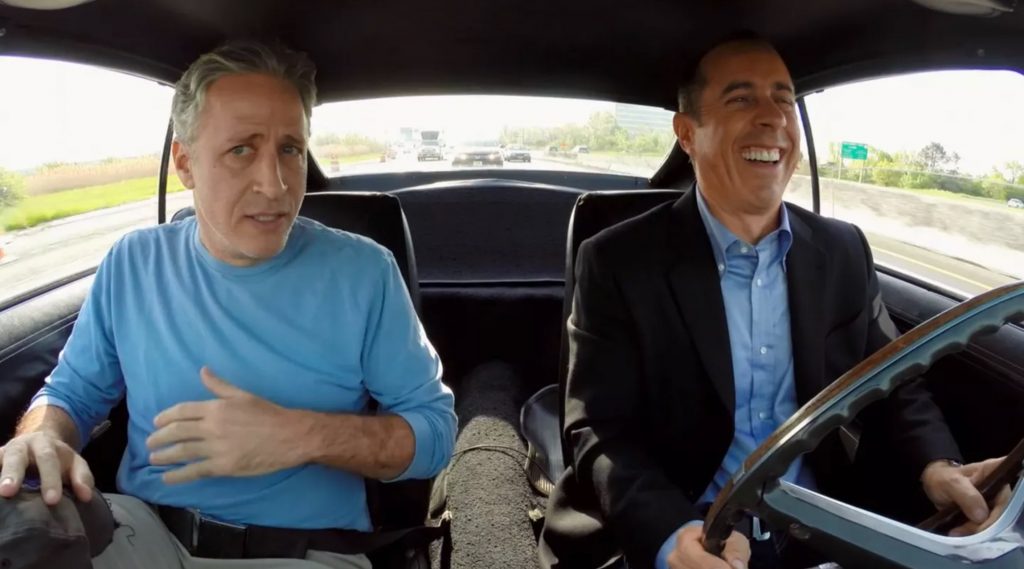I’ve noticed something about comedians.
Most of them have the same frustrations when it comes to social media. As an audience growth consultant, I work with a lot of comics and hear the same issues over and over again.
Any of these sound familiar?
- “I’m putting a lot of time and effort into social media but not getting any meaningful results.”
- “I feel stuck in my career and don’t know what to do to get unstuck.”
- “I don’t understand why other comics have so many more followers than me when my posts are are just as good as theirs.”
- “Not having a big social media following is preventing me from getting opportunities.”
- “I don’t really have any plan for how to use social media so I’m just randomly posting stuff.”
- “I’m creating a lot of different stuff, but feel scattered and have trouble focusing on any project long enough for it to succeed.”
- “I can’t figure out how to make money from my talent.”
If any of those resonate with you (and I bet several do), then you’ve come to the right place.
In this post I’m going to share 17 social media strategies you can start using today to grow, activate, and monetize your audience based on work I’ve done with comedian clients over the years.
I know these work because I’ve seen them work over and over again for all different types of comedy clients.
You don’t need to do them all, but the more you do, the more likely you are to start gaining traction.
If you’d like more hands-on help, email me and I’ll be happy to give you more details about how I work with clients.
You can also check out Grow Your Audience to get the 100+ articles, videos, podcasts, books, and resources I recommend for comedians looking to use social media to build their fanbase and further their career.
Now, on to the strategies…
1. Use fewer social media platforms.
You don’t need to use every social media platform. In fact, you shouldn’t.
Just because Facebook, Twitter, Instagram, Snapchat, Pinterest, YouTube, TikTok, podcasts, and a thousand other platforms exist doesn’t mean you have to use them.
Any one of those platforms has more than enough people on it for you to achieve success beyond your wildest dreams so break from the feeling that you need to be everywhere.
The fewer platforms you use, the more likely you are to succeed on them.
That’s because social media success requires a significant commitment of time and energy — if you spread yourself too thin, you won’t be able to generate the optimal results.
So pick your two or three (at most) favorite platforms to use and focus your energies on them.
It’s a good idea to set up accounts in your name on all of the platforms, but you don’t have to actively use them. Instead, just post a single thing on each directing people to follow you on the platforms where you are active.
2. Follow fewer people.
Don’t follow everybody who follows you.
Don’t follow random people in the hope they’ll follow you back.
Don’t follow anybody you’re not genuinely interested in.
And don’t be afraid to unfollow people – often.
The fewer people you follow on any social platform, the better your feed will become.
The better your feed becomes, the more valuable people and information you’ll be exposed to and the more likely you are to learn, connect, and discover opportunities.
Who you follow also sends a signal to the social media platform algorithms about your interests and therefore who may be interested in you.
The more random the people you follow are, the more difficult it becomes to discover and connect with a specific audience.
3. Use social media to connect, not to broadcast.
The most common mistake comedians make with social media is to assume its purpose is to promote their creations and treat it like a broadcast tool.
That’s the fastest way to wind up feeling like social media is an overrated waste of time.
Yes, you can use social media to promote your content, but it’s actually a crappy broadcast tool because these days the algorithms mean few of your own followers will even see the content you share.
On most platforms, you’re lucky to get 10% of your followers to see one of your posts— unless you pay to promote them (more on that in a minute).
The real strength of social media is to use it as a connection tool.
It’s a powerful way to connect with individual people, companies, and influencers who you otherwise may not be able to reach. Using it in that way will generate way more value for you than simply blasting out links to your new video or asking people to come to your show for the 100th time.
Come up with a list of individual people – or at least types of people – who you’d most like to connect with and use social media to follow, interact with, and develop relationships with them.
Your list might include industry people like bookers, agents, casting directors, studio executives, and more established talent or it could include potential fans who are interested in specific topics you cover in your comedy.
For example, if your comedy is geared toward moms then the more moms you have a relationship with on social media, the better.
Taken a step further, you can seek out relationships with people who have their own audience of others likely to enjoy your content. For example, if your comedy is geared toward moms developing a single relationship with a person who runs a huge Mom blog could be a career-changer for you.
The path to getting meaningful attention for your creations isn’t to just tweet them every day, it’s to build relationships with others who are likely to enjoy and share them.
Speaking of moms…
4. Choose a specific target audience.
Your success in using social media to grow your audience is directly related to your ability to identify the specific target audience you hope to reach.
When I ask comics who their target audience is, far too many of them say things like “people who like funny stuff” or “people who think I’m funny.” Those answers make it incredibly difficult to grow an audience.
Your comedy should be for somebody, not for everybody.
The more specific the niche, the easier it is to find and connect with those people through social media and ultimately the more likely you are to succeed.
Your ideal target audience doesn’t need to be the ONLY people who enjoy your work, they’re just the ones who are MOST LIKELY to enjoy it.
Think of it like a dartboard: You get the most points for hitting the bullseye (smallest possible niche), but some shots will land outside the bullseye (non-target audience) and still get you some points.
So, how do you figure out who your target audience is? Try this.
If I guaranteed you 1,000 people would see your next performance or piece of content, who would you choose to see it?
Would they be male or female? Rich or poor? Married or single? How old would they be? What other comedians would they like? What would their hobbies be? Where would they live?
You would choose the people MOST LIKELY to enjoy your work and whoever fits that description is your ideal target audience.
Once you identify your target audience, that should guide everything else you do on social media including the content you create, people you connect with, and even the platforms you use.
If your target audience is grandfathers, Snapchat probably isn’t the right place to be spending your time.
5. You don’t need more followers, you need more of the RIGHT followers.
The first question I ask a comedian client is always, “What are your goals?”
And their answer always includes some version of “I want to get more followers.”
That’s an understandable answer, but it reveals a crucial strategic flaw.
Because you don’t need more followers, you need the right followers to help you accomplish your goals.
For example, if your goal is to get cast in a sitcom, getting 10,000 random people to follow you on social media isn’t likely to move the needle much toward making that happen.
However, getting 50 casting directors and sitcom showrunners to follow you could have a huge impact on achieving your goal.
Your audience growth strategy should always be tied to your specific offline goals — not overrated vanity metrics.
Use social media to attract the kind of followers who can help you get where you want to go. Social media as connection tool as opposed to broadcast tool, remember?
So figure out what your ultimate goal is and reverse engineer who can most help you achieve it —that’s who you want to use social media to attract.
6. Don’t waste your social media bio.
It may be “hilarious” that you listed your location as “Uranus” on your social media bio, but it’s a lot less funny when potential fans don’t realize you live in their city and they could actually come to your shows.
Do you know why people look at your bio on a social network?
They’re deciding whether or not to follow you.
Most likely they clicked your profile because they saw something you posted that somebody else had shared and were intrigued, so they want to learn more about you.
But they’re not really looking to know who you are — people are more selfish than that (which isn’t necessarily a bad thing by the way).
They’re trying to figure out if you’re worth inviting into their own feed.
The question on their mind isn’t, “What does this person do?”
It’s “What can this person do for me?”
Write your bio in a way that answers that question.
Explain the value people will get from following you. Reference your target audience. Make it clear who your posts are for.
My own bios are far from perfect examples (I should listen to my own advice a little more), but they’re in the ballpark.
Here’s my personal Twitter bio:
I run the @ftinterested newsletter and help clients use social media and newsletters to grow and activate audiences. Used to run digital media for @theacademy.
It speaks to the value my work (and tweets) provide instead of just saying what I do and it tells potential followers what’s in it for them if they hit that follow button.
My bio could simply say I’m a newsletter creator or social media consultant without any specifics about the value those things provide, but it would make people less likely to follow me.
Take a look at your bio and think about how (or if) it encourages people to follow you and makes clear the value they’ll get from doing so.
7. Decide if your social media channels are a reality show or a magazine.
Here’s a deep dive into the reality show vs. magazine social media strategy concept, but for the purpose of this post here’s a cliff notes version:
Most comedians post on their social media channels like episodes of a reality show — here’s what I think, here’s what I’m doing, here’s yet ANOTHER selfie.
That’s fine if it’s compelling, but in general it’s more effective to approach your social media channels as magazine editor would.
Magazines — even Oprah’s magazine — aren’t all about their publisher’s life. Instead, they feature curated content that represents the viewpoint of the publisher and is designed to provide value to a specific target audience.
Not every one of your social posts needs to be about you (and they probably shouldn’t be). Take a magazine approach and curate as much content as you create.
Doing so will make it easier to attract an audience and easier to provide value to them more frequently because you don’t have to create every single thing you share.
(Side note: I’m not suggesting you steal content from others. Share stuff with credit and drive attention to others — don’t pass it off as your own. Basically, don’t be a jerk.)
8. Create evergreen content.
This one isn’t a universal rule because ultimately you need to produce what you’re inspired to create, but…
There are major advantages to sharing timeless content on social media as opposed to posting things tied to whatever topical thing is happening today.
A great post about something the President did today may do well in the moment, but its lifetime value is limited to less than 24 hours.
By comparison, a great post about lessons learned from getting married has the potential to be relevant forever. That means you can repost it for years to come, adapt it for other platforms, expand or contract on the idea in videos or blog posts, and reap rewards from it forever.
It’s also likely to get shared by others for a long time (if it’s great) and continue to grow in value.
It takes the same amount of time to create timeless content as it does topical content, but the value of evergreen content is infinitely higher.
You can certainly do both, but just keep in mind you’ll get more bang for your buck with creations that don’t have an expiration date.
9. Create recurring franchises.
You know how Saturday Night Live creates recurring characters and sketches that pop up in multiple episodes? Do the same with your social media content.
It doesn’t have to center around sketches or characters, but look for ways to package and brand particular types of posts and then feature them on a consistent and recurring basis.
You don’t have to do what DJ Khaled did years ago (please don’t), but note how his repeated use of phrases like “Major key,” “They,” and “Bless up” helped build a brand around his social media content.
You can do this through language or create ongoing posts like a “Wednesday Work-In-Progress joke” or interviewing your dentist every time you go for a checkup.
Packaging your posts will make them feel bigger, strengthen your audience’s connection to you, and may even generate intellectual property you can expand and exploit in other arenas (TV shows, merchandise, web series, etc.) down the road.
Plus, fans are more likely to tell their friends “You gotta check out this guy’s Dentist Chats” than they are to say “You gotta check out this guy’s posts.”
10. Reply and engage.
Comments — and specifically comments on other people’s posts — are the most overlooked opportunity on social media.
The action is in the replies. It’s in the comments. It’s in the engagement.
You will often attract more attention by replying and adding value to somebody else’s social media post than posting your own – and this is especially true if you don’t currently have a large following.
Look for opportunities to do this within your target audience and about relevant topics to your comedy to unlock easy value.
Don’t just leave meaningless comments or say “Great post!,” but figure out how to add value to other people’s posts in the replies and in doing so you’ll reach a much larger audience than you would on your own.
A few things to remember:
- This isn’t about trolling or getting into pointless comment wars. The goal is provide value to the original poster and the audience interested in that post.
- It’s ok to comment with a link to your own creations if they’re relevant, but this isn’t just about self-promotion. You want it to be clear you’re trying to help other people, not just help yourself.
- Don’t get discouraged if your initial comments don’t generate any responses — that doesn’t mean they didn’t get seen. Commenting is a long-term play and when you do it consistently and authentically, you will see results.
- Twitter is an ideal platform for this kind of engagement strategy because most people’s profiles are public, but it also works on just about any platform.
11. Invest time, effort, AND money into social media.
Don’t believe the myth that social media is a free shortcut to an audience — it’s not.
Social presents amazing opportunities, but those opportunities come with a cost. You’ll need to earn them.
That cost not only requires significant time and effort, but it often requires a financial investment as well to get where you want to go.
Before you throw up your hands and walk away, allow me to reframe a bit what I mean and share the unfortunate mindset I too often see from comedians.
Imagine spending $13,000 to create a product and then refusing to spend any money to market it.
This is what most comics do and it’s a big reason why their creations fail to catch on.
Hypothetically, if you value your time at $25 per hour (equivalent of a $50k annual salary) and spend 10 hours a week creating for a year, you’ll have invested $13k worth of effort in it.
This is common for any comic with a podcast, blog, video series, etc.
Unfortunately, what’s also common is for those same comedians to balk at the thought of investing money to promote their creations or learn how to get them seen.
They think they’re being smart and cautious, but it’s actually the opposite — they’re being foolish & irresponsible.
If something is worth a $13,000 investment of your time to create, it deserves at least some additional investment to be discovered – even if you can only afford a minimal amount.
The comics who succeed are the ones who take the promotion of their work as seriously as its creation.
If you’re serious about building an audience, you must be willing to make a financial investment into the promotion of your work and not just its creation.
Give yourself a real shot to succeed. Your hard work deserves it.
12. How to use Facebook ads to promote your content.
When you’re ready to invest in the promotion of your work, one of the best and most cost-effective places to start is by running Facebook ads to promote your content to your target audience.
I could easily write another 10,000 words about Facebook ads strategy, but I’ll keep this simple for the purposes of this post.
Here’s what you should do:
Pick a piece of content you want to promote and think about the audience MOST LIKELY to enjoy it.
For example, let’s say you have a video about what it’s like to be a new parent. The audience most likely to enjoy that is new parents — not general comedy fans, not people who like Funny or Die, and not even necessarily your own fans (many of whom may not have kids).
Set up the ad to target new parents (on Facebook you can get incredibly specific with targeting and target only parents of kids who are less than two-years-old for example).
Here’s a basic overview of Facebook ad targeting.
Every piece of content you promote with an ad should be targeted to the specific audience most likely to resonate with that piece of content.
For example, if the next video you want to promote with an ad is about what it’s like to be a mom of a newborn, you don’t want to simply repeat your previous targeting of new parents.
Instead, you’d target only new parents who are women so that it’s only shown to Moms because they’re more likely to enjoy it than Dads because it’s about being a Mom.
Don’t pay to promote content to people who are unlikely to resonate with it!
Make funny stuff, pay to get it in front of the people most likely to enjoy it, and watch what happens.
13. How to use Facebook ads to sell tickets to your live shows.
You can use this same strategy to promote your shows and sell tickets.
Let’s say you want to sell tickets to a show in Tulsa and most people there don’t really know who you are.
You’ve got videos of yourself telling great jokes about being in the military, getting divorced, and watching NFL games.
So set up three ads targeting three different audiences, each of whom live within 50 miles of the venue in Tulsa where you will perform.
The first ad would target people who are in the military or are veterans with your military joke, the second would target people who are divorced with your divorce bit, and the third would target NFL fans with your NFL material.
Each ad would include a plug for your show and link to buy tickets in the text of the post.
If your content is good, it will work and you’ll sell tickets.
I know, because I’ve done this exact thing for lots of comedians and helped them sell lots of tickets.
It will also be cheap – you should be able to get views for less than 5 cents per view and get people to click through to the ticket page for less than 50 cents per click. Cost per actual ticket purchase will vary a lot based on a bunch of other factors, so you’ll need to test and see how it goes for you.
(Side note: If your content isn’t funny it won’t work because even the best ads strategy in the world can’t make up for bad content.)
You can follow a similar strategy to this and run ads on other social media platforms like Twitter and Instagram as well, but in general Facebook will be the most cost-effective and get you the most bang for your buck.
Again, Facebook ads are incredibly powerful, but they can also get complicated to figure out so this is something I often handle for clients. If you want to talk about how I can help you with it and run them for you, let me know.
14. You need a newsletter.
These days just about every comedian seems to have a podcast, but what every comedian actually needs is an email newsletter.
This is another topic I could write a whole book about and I regularly share tons of tips about newsletters in my Newsletter Creators Facebook group, but here’s the short version.
There’s no more valuable direct connection to your audience than an email address and the best way to get people to give you their email address is to offer them an entertaining and valuable newsletter to subscribe to.
Here’s a bunch of advice about how to grow your newsletter, but in general you want to create a content-driven newsletter that you send to subscribers at least twice a month.
It doesn’t have to be complicated, but it shouldn’t just be spammy promotional stuff. Your newsletter should provide value to your fans, not the other way around.
And when you provide value to them, it creates value for you.
15. Become part of a non-comedy online community.
One of the biggest mistakes comics make when it comes to social media is to focus all their posts around topics that are only interesting to other comedians.
It’s fine to weigh in on the latest comedy industry gossip or to rant about how club owners should do this or that, but don’t forget your target audience isn’t other comedians.
Focus your content on your audience, not your peers.
In addition to keeping that in mind when creating content, one of the best ways to attract new fans is to become an active participant in at least one (or more) online communities that have nothing to do with comedy.
Pick one of your interests that aligns well with your target audience and seek out Facebook groups or Reddit subreddits that cover that niche.
For example, if you’re a foodie who lives in Los Angeles you might participate in this LA Restaurant Recommendations group on Facebook or Reddit’s cooking community.
Join relevant communities and become an active participant in their conversations. Don’t just join and promote your own stuff, but look for ways to add value to the community and be active in the discussions in genuine ways.
Doing this is a great way to build relationships with people who are likely to enjoy your comedy and over time they’ll become true fans and supporters of your work.
16. Get yourself a promotional partner (or two, or three).
Here’s the simplest tip I can give you: Find somebody with a similar goal to yours who wants to reach a similar audience and team up to help each other.
All you have to do is strike an informal partnership where you agree to promote some of each other’s content and you’ll both benefit.
Just make sure you pick somebody whose target audience matches yours because otherwise their promotion of your creations will be to an audience unlikely to enjoy them.
For example, if your target audience is college guys and your promotional partner’s audience is middle-aged women, it’s unlikely the cross promotion will work well for either of you.
But, if you choose somebody with an aligned audience it will drastically speed up your growth.
And if you really want to go for it, partner with several people— the more people you can team up with, the better it will be for all of you.
(Side note: A lot of the content you see going viral on social platforms is heavily boosted by secret “engagement groups” who agree to promote each other’s posts.)
17. Be consistent. Stick with it. Think long term.
Ok, I know that was a lot, but we’ve reached the last tip!
You certainly don’t have to follow all the advice I laid out above, but whatever you decide to do make sure you’re consistent, stick with it, and recognize audience building is a long-term game.
It’s not about going viral (which isn’t really even a thing), it’s about building something authentic and genuinely valuable. A true audience who truly cares about you and your work.
These strategies will help you do that.
If you feel like you could use some additional help figuring out where to start and what to do, shoot me an email and I’ll let you know how I work with clients.
And don’t forget to check out Grow Your Audience to get the 100+ articles, videos, podcasts, books, and resources I recommend for comedians looking to use social media to build their fanbase and further their career.
Thanks for your interest and good luck!
One more thing…
I spent hours writing this because I want to help as many comedians as possible. I know it’s hard out there and it’s frustrating to see so many talented people not getting the results they deserve from social media simply because they don’t know how best to approach it.
So, if you found these strategies helpful, I’d love it if you would share this post with others you know who could benefit from it directly or share it on your social media platforms.
Thanks.
Josh

